Dec. 29, 2021
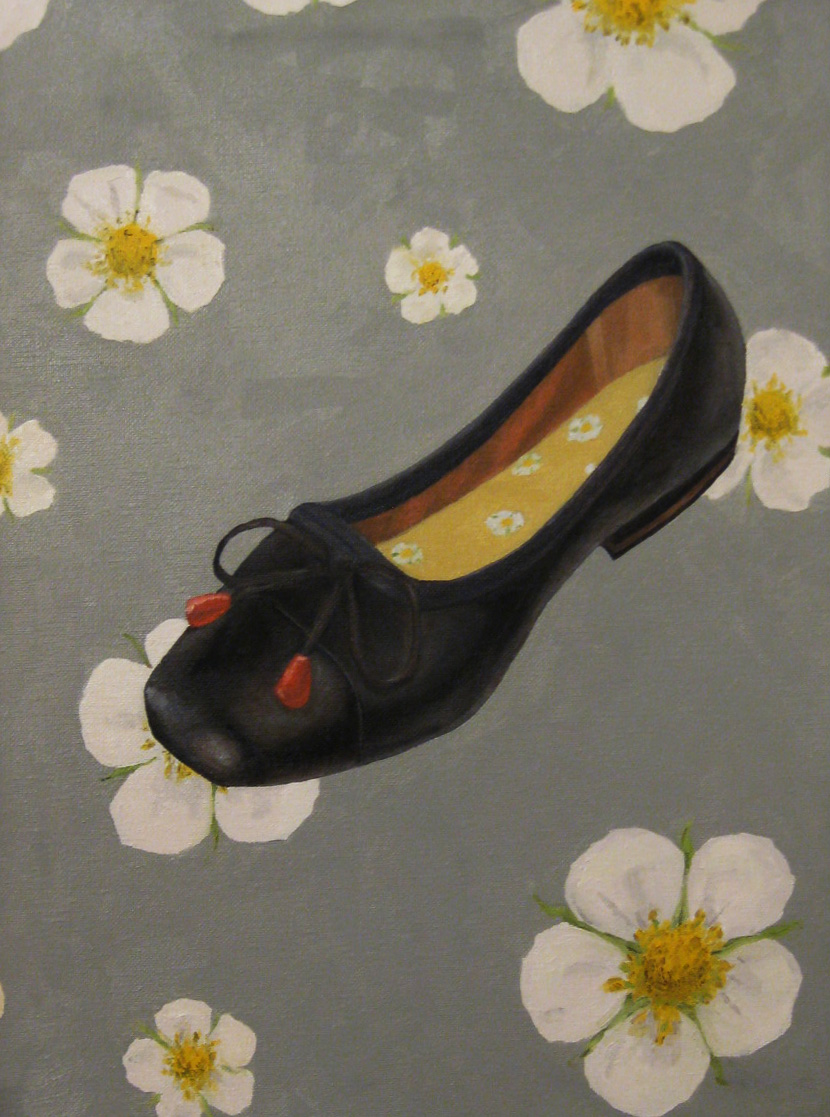
Flat. Oil on Canvas. 12" x 16". 2021

Flat. Oil on Canvas. 12" x 16". 2021
Still here! It's been an Autumn. Here's a drawing of a racecar.
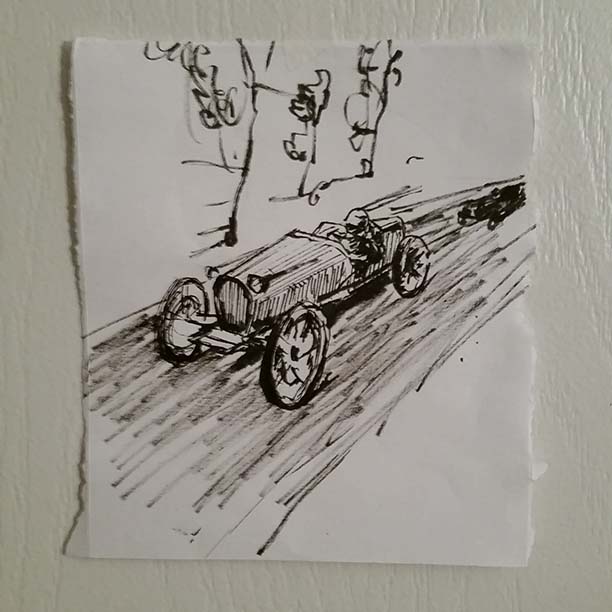
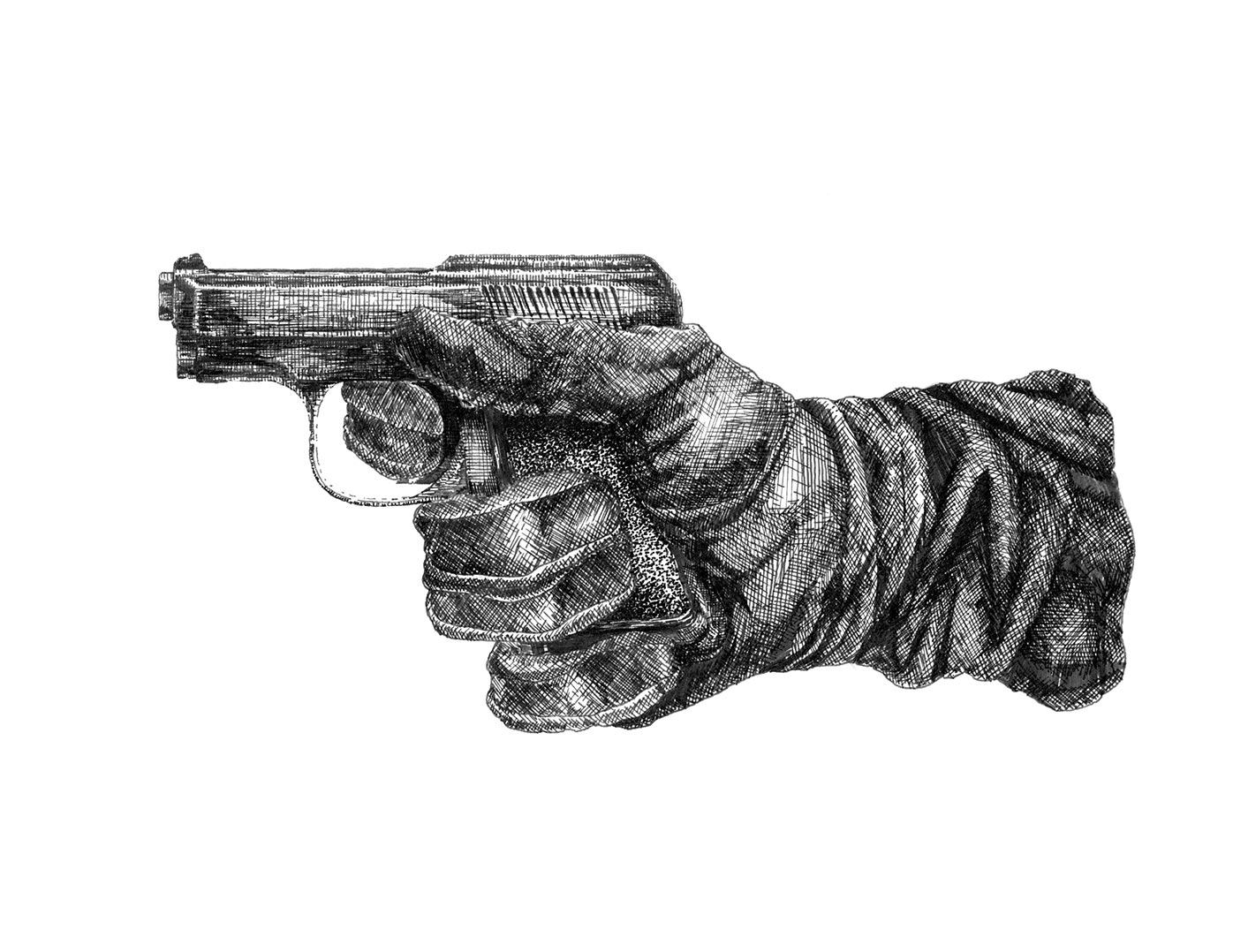
Illustration commission for the article Building a Secret Agent by Chevanne.
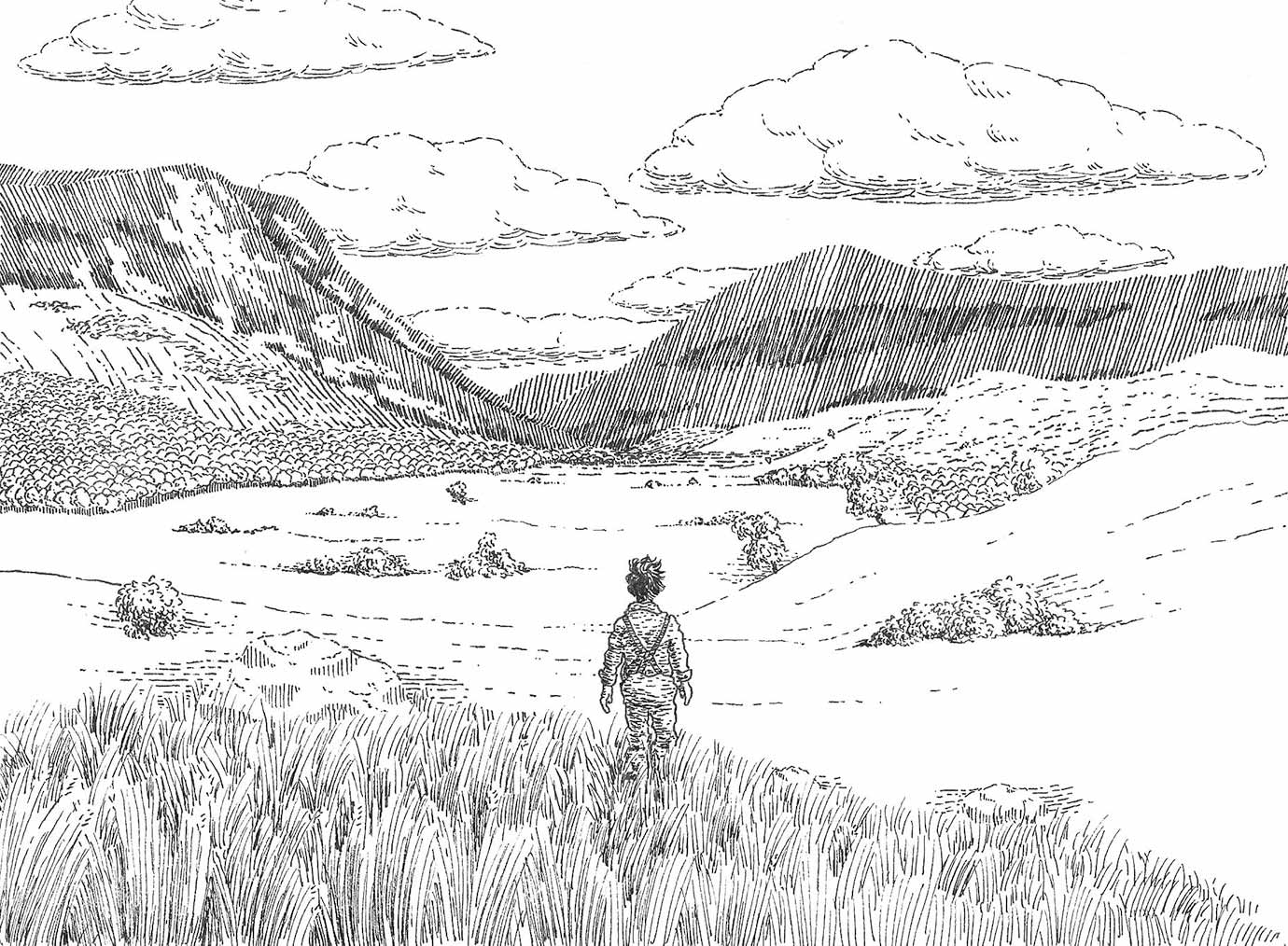
Here's another commission I did for the previous article in this series.
We have a great issue in the works at earratmag.com. Here's a sneak peek!
For this and more great art, articles, and insights, be on the lookout this September!
Most weekdays I go running along a roughly three-and-a-half-mile route through these suburban developments that were built along an old road through the woods near a highway. Most of the homes were manufactured in the early 2000s, all according to a handful of plans that were neatly summarized and collated in faux leather binders with gilded text that now flakes off on forgotten shelves in dying office parks.
After about a half hour I'm done running. I'm stumbling out of the last development on my circuit, back onto the sandy shoulder of this rural road. There's sidewalk along the parts that are flanked by the backsides of the suburban backyards.
Overgrowth spills out of some of them. A big thistle here. Some raspberries there. I duck under a big blackberry or mulberry bush that drops its bounty onto the stained sidewalk below, now mostly purple.

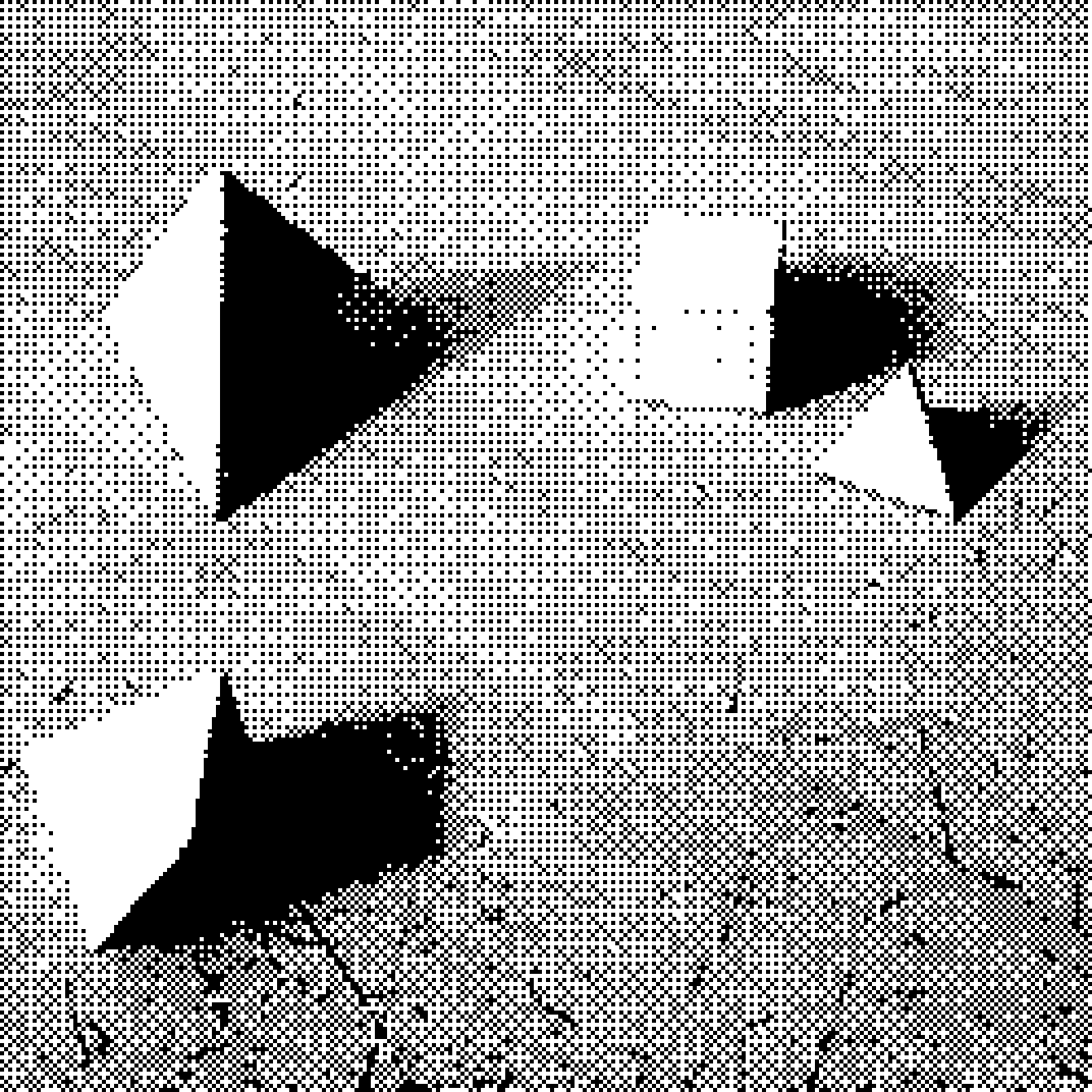
Some platonic solids
Ear Rat Mag: The submissions we've been getting for Ear Rat 4 are great. The deadline's June 15 if you work fast and dream of seeing your stuff in (free) (digital) "print"!
Recliner Repair: Didn't work. When I pushed the button to move the footrest, all that moved was the piece of the broken thing that I'd glued back on. Oh well. I guess we'll just have a recliner that'll require a disclaimer whenever guests come over for a while. In its current state the footrest just springs out when you lean back a bit. Maybe we'll just call it a feature. Maybe one of these days I'll learn how to "weld" plastic, which I just learned was possible, but the motor assembly part will cost much less than the damage I could cause with that experiment.
Video Games: Kingdom Come Deliverance is a buggy, lovable mess. It's a historical RPG that takes place in 1400s Bohemia. It can teach you a lot about life in the middle ages, like what kinds of technology they used, how politics and government worked, and how important it was to press L1 right when the target that hovers over your opponent's chest turns green. Also, they curse a lot, which is funny.
Books: Reread VALIS by Philip K. Dick. It's still weird. Perusing Practical Typography by Matthew Butterick. I now know I'm using the wrong quotes, apostrophes, font, and probably a bunch of other stuff, I know this is crucial, and might amend this some time in the future.
Today's project is trying to fix my parents' broken power recliner.
It broke when a user, who could have been anybody really, tried to put the footrest down while its movement was obstructed by a big cylindrical pillow that had fallen under it. Snap!
The motor that drives it is connected to a big screw in a beam. Along this beam slides a block of plastic that attaches to the part of the chair that turns the big scissor mechanism that makes it recline. That plastic part is the part that broke. The motor would turn it, but it was now in pieces, the bigger part still on the beam and the smaller part still dangling from the pin that connected it to the rest of the chair.
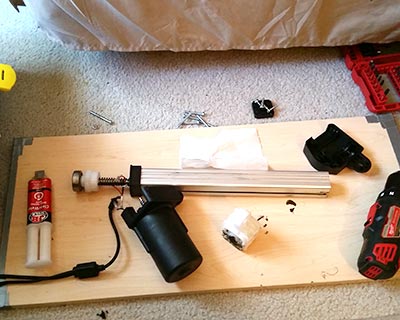
Deconstructed actuator assembly. The black cylinder is the motor housing. The plastic block to the right of it is the part that broke. The motor moves that plastic block along the metal rail, pushing on the mechanism that makes the chair recline. The epoxy I used to put it back together is setting. God help us all.
I tried to remove the broken part without taking out the whole motor assembly, but there seems to be a stopper at the end of the rail that prevents it from coming out all the way. It's hard to tell if the bit of plastic in there is meant to stop the block or just prevent the assembler from putting it on the wrong way. There's too much grease to see it well. Either way, even after I'd removed the end cap on the rail, the block wouldn't go past a certain point. So, I took out the whole assembly and removed all of the screws that were easy to get to. It's full of grease.
Since the block cracked along a pretty distinct line, I figured I'd try to mash the thing back together with some epoxy. As always, I made a mess of this step. Blobs of the foul-smelling stuff extend all around the crack on the outside. But I don't think I got any on the inside of the thing, where it would prevent it from going back on the rail.
After the epoxy has had at least an hour to harden, I'll try to get the block back onto the rail and reassemble the whole thing. I won't put it back in the chair tonight. I should wait at least until tomorrow for that. Now I'm just anxious to get this greasy mess back into as few parts as possible.

A black and white line drawing of a hooded figure whose head appears to be a single giant eyeball. He holds upright in one hand a wand that is topped with a hoop from which emanate bubbles that are carried away by the breeze. Each bubble has within it a smaller ellipse, giving it the appearance of an eyeball or an egg white and yolk. With his other hand, he points upward. The front of his hood forms a peak that melts upward into a series of lengthening blobs that, like the bubbles, are carried away by the breeze. He stands light on his feet.

The human characters in the Philip K. Dick book Do Androids Dream of Electric Sheep? follow a religion whose central figure, Wilbur Mercer, was as a child "able for a time to bring dead animals back as they had been." Though all creatures were important to him, he held especially dear the donkey and the toad.
Mercerism, the practice of which includes so-called empathy boxes that join followers in a shared sensory experience as Mercer, was first developed in the short story "The Little Black Box," published a few years earlier.
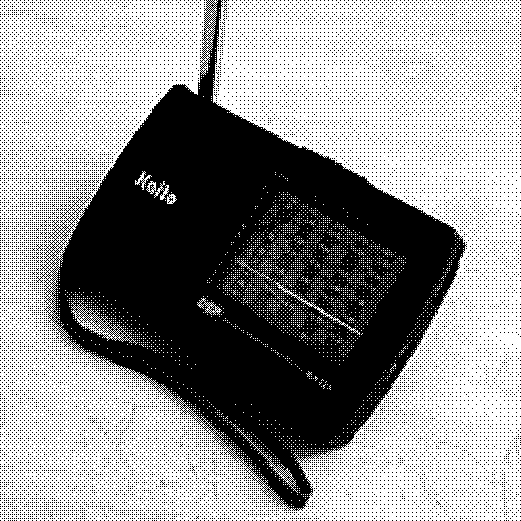
Kaito KA321 battery powered handheld AM/FM/Shortwave receiver.
Radio salesman: *slaps top of radio* "You can fit so much schhhh zzzzz ...JESUS!... crrrsshhhhh crrrhhh ...ROMANS 12... bzzzsshh in this bad boy."
All frequencies are extremely approximate and all interpretations subject to error. All I know about shortwave radio is that you can get a receiver on the internet for under $20 USD.
≈5.8 MHz: Holy cow it's Reviewbrah! That's right, the meme legend and acclaimed food reviewer runs a regular shortwave radio show, VORW Radio International. He mostly plays music but also talks about stuff. He says the last song was "Say Hello to Heaven" by Temple of the Dog. I thought that was Chris Cornell's voice. I tried to send an email but couldn't turn on my computer and monitor without filling the room with too much interference to pick up the station. This is like a seance. Everything has to be set up just right.
He signs off: "Until next time, dear listeners, be safe, be healthy, and I wish you the very best." A creepy Bing Crosby song starts and I carefully turn the dial onward.
≈5.91 MHz: A church choir. A man with a southern accent reads from one of the gospels. King James. "He that overcometh..." Electronic drone underneath it. Full-on echo effect at the end of each chapter.
≈5.95 MHz: Swinging gospel music.
≈5.96 MHz: New testament reading. Might be the same as ≈5.91. If it's different, might as well be the same as ≈5.91.
≈5.97 MHz: "God Bless America" sung by a very big, very white-sounding choir.
≈5.99 MHz: Radio Havana. English-language news report by a lady with an accent. They switch to a guy with a vaguely English or Irish-sounding accent. Hard to place. He's talking about an Israeli offensive in the current escalation. Anti-government demonstrations in Bogota. A study about how the failures of institutions made the pandemic worse. He talks about Boris Johnson apologizing for 1971 killings in Belfast. Biden administration's detaining 20,000 migrant children.
He hands it over to a guy with a thick accent reading a weather report for apparently all of the Americas. Nebraska, Mexico, South America. Hard to make out everything for the static. Says something is due to global warming.
≈6.1 MHz: Music from somewhere in, sounds like, Asia. Maybe India?
≈6.95 MHz: Weird squiggly static. Probably interference. Possibly space squids.
≈7.19 MHz: Noise. Wild electrostatic howling.
≈7.25 MHz: Unintelligible male speech. Intonation sounds like American English. Long pauses indicate that it may be one side of a conversation.
≈7.39 MHz: News report in an unknown language, possibly European, followed by a long, anthemic song with orchestral and techno-pop backing. I can't discern the lyrics, but the music indicates that they are about things like mountains, the air, and liberty.
≈7.4 MHz: English-language news out of Japan, judging by the stories. A Japanese detainee in Myanmar. Big Japanese company about to enter the smartphone market. Concern about the impact of the upcoming Tokyo Olympic games and who they "are for," who they are supposed "to serve." Also some stories from Asia and the US. Austere news music. Weather in various parts of Japan.
≈7.48 MHz: The soundtrack to a computer's fever dream. Fast beeps, kind of like an old dial-up modem. But there's a very faint human voice under all this. Unintelligible. I don't think it's English. It's quite emphatic. Sounds like a man with a bullhorn.
≈7.53 MHz: It's Brother Stair, whose death last month won't stop him from continuing to harangue shortwave listeners with fire and brimstone tirades. Apparently they're still playing old recordings, as they did when he was locked up for the kind of stuff you'd expect a radio evangelist to be locked up for.
A man who called in asks about the "time frame for end-time events." The old man tells him we're either going into the end times or are already in it. He says the reason he gets so few listeners is that, unlike other preachers who get a lot of listeners, he's not a "blind leader." The caller says, "I called you up. First phone call, I get ya! You know what? This is prophetic!"
≈9.55 MHz: News report in what sounds like an East Asian language followed by a very strong, very newsy jingle.
≈9.83 MHz: Eastern music, possibly Indian.
≈9.9 MHz and onward: Just windy static...
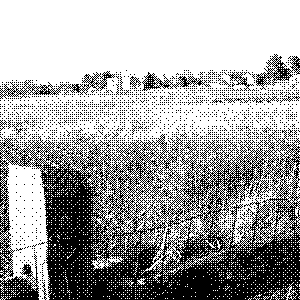
There's art in reducing an object or scene to an image. There's art in reducing an image to a simpler image. Computers can help us do this.
There's art in seeing how small you can make an image that successfully represents what it's supposed to represent. Finding the point where it successfully represents what it's supposed to represent, winnowing down to the parts that most represent what the whole represents, is the art.

A small wetland preserve in Southeastern Pennsylvania, where I realized that any day there is ground I may walk on for the first time.


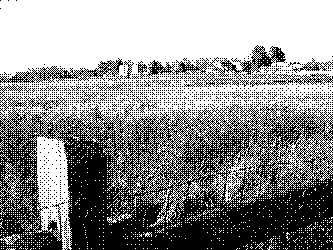
In poetry, the constraint to rhyme enables new beauty to emerge. In digital image manipulation, the constraint to reduce the image to some small number of kilobytes, some small number of hexadecimal rows, can yield similar emergent beauty. Today we have the computing power to start with big images and to selectively reduce in many ways.
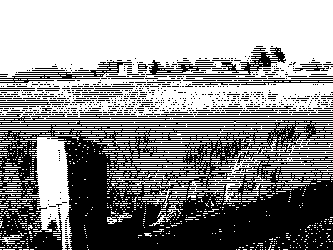

It's also satisfying to know that an image sips at a server's storage capacity and loads quickly on old hardware with slow internet connections. There's also beauty in the accessibility of it.
Back home, digging through the old technology I left in suspended animation in the basement. The Q4OS Linux distribution runs well on the Dell desktop from 2004. I'd put Ubuntu on it years ago but decided something a little lighter would suit it better. Q4OS does. I have a couple of replacement CMOS batteries coming in the mail. Just for fun. They were cheap. It'll be nice to know the system won't be going through complete amnesia as I turn it off and on during these visits.
I had less luck with the Dell desktop (we were a Dell family) from '98. I couldn't get it to boot from the USB drive, on which I'd installed some version of Puppy Linux. I seem to remember doing this years ago, but I couldn't figure it out now. Maybe I'll try again. The situation's a bit more complicated with that antique. The hardware started breaking down twenty years ago. Just getting to the BIOS menu takes longer than it did when the computer left the factory. The sludge has been ground deep in that one for most of its existence.
The six years between each system's birth saw a lot of change in home computing. It wasn't just the explosion in memory and storage capacity. USB ports became universal and multiplied. Drive connectors got smaller. Simplified internet access became a given.
One of the great, if superficial, advantages the '04 has is its case, which has side panels of snow white metal. The plastic front parts are mostly a muted chrome and black. Neither seems susceptible to the bad yellowing that afflicts the '98 and every other piece of white plastic that exists long enough.


Feeling loopy? Want to make cool pictures or words about it? Head on over to the Ear Rat submission page to learn how you can submit your work for consideration.
It's cool! It's fun! It's usually pretty good!
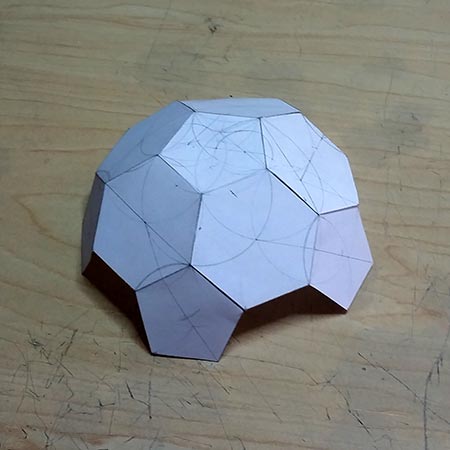
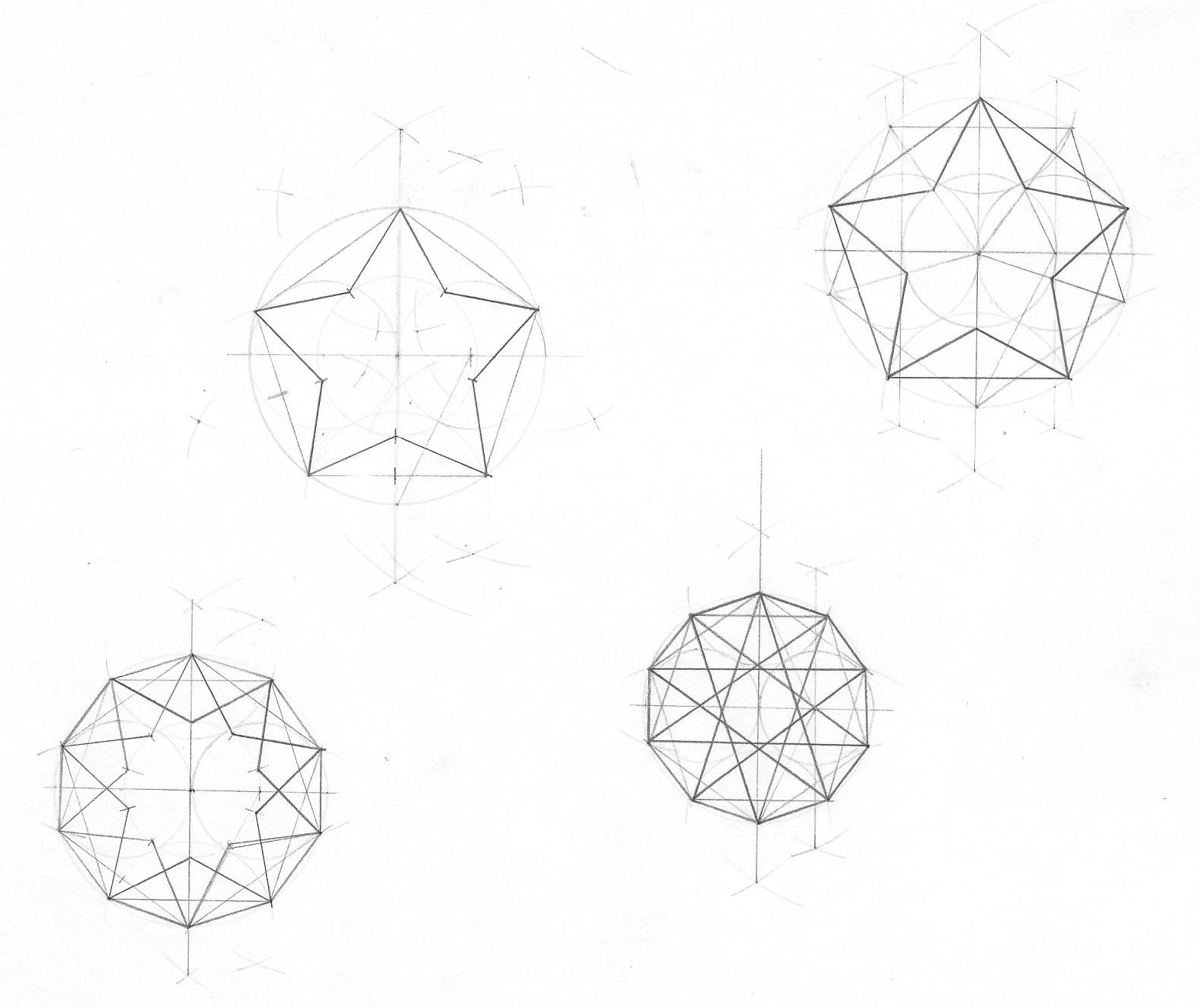
Ear Rat 3 dropped this week! More cool art. More cool words. More cool reasons PDFs are still relevant in 2021. Check it out, if you're into that sort of thing.
Editor-in-chief Strange Crust and I are proud of this one. The theme is "Ripped Off," but that's not how you'll feel after you download it. It's free.
As always, I'm honored to get to slide around the words and images of our awesome contributors.
We'll put out next issue's call for submissions just as soon as we've had sufficient time to dress our wounds and re-hydrate.

As I lay awake last night, the urge struck to grab my phone and scroll through various apps until my eyes stung.
Then the thought occurred to me, "There's nothing on there." There wasn't. I scrolled anyway. I do not remember what I was looking at, but I remember my eyes stinging.
Next time, I won't start along the familiar cycle of self-doubt and disappointment when the urge to scroll strikes again. Instead, I'll just remind myself that there's nothing on there. There's never anything on there.
Another April Fool's Day has come and gone. Either nobody got me, or the prank they got me with was so insidious that I have yet to realize it.
The keyboard tray I ordered got lost in the mail. Maybe that was it. It does make sense, some person in the shipping center in Baltimore, its last known location, reading the label and whispering "April Fools, punk." Good one.
It's okay though. They refunded my order. Maybe the refund won't go through, thereby adding to the prank. This prankster's treachery knows no bounds.
~~~
I remember reading somewhere just now that radio waves travel farther at night. According to the thing I vaguely remember reading just now, Earth's ionosphere is more reflective where it's not being bombarded by the sun's rays. This allows radio waves to "bounce" between the ground and the ionosphere to travel farther.
Ever since I read this two to five minutes ago, I've had the feeling that being outside during a sunny day left me feeling exposed, uncovered by a nice ionosphere to bounce off of should I suddenly turn into a radio wave.
In an apparent effort to spend even more of my indoor hours in front of my computer, I finally ordered a proper under-the-desk keyboard tray. I detested them as a kid, but my devotion to nearly constant computing was not serious then. Today, better keyboard access is crucial. It should get here in a couple of days.
Proper seating will be my next aim. The only kind of seat I've ever been able to tolerate for hours at a time is a car seat. If it were feasible, I'd go to the junk yard, buy the cleanest bucket seat I could find, and rig up some kind of base that would allow me to set it on the floor. Of course, this is not feasible, but I've gone without a good office chair for so long that even a decent office chair may feel like a major improvement.
The national (US) news was on in the living room last night. The national news is never something you turn on. It just happens to be on or it doesn't. It occurred to me that I didn't have to have an opinion about anything they were talking about. This was a great relief.
Why did I feel pressure to have an opinion about anything in the first place? Where does this pressure come from?
How did my opinion ever get up there on that pedestal? What is this pedestal doing here anyway? We don't need this pedestal. We can make room for something else.
When trying to overcome the desire for snacks or junk food: I imagine my appetite as a little cat that is begging for food even though she already ate. I love her, but I must be a mindful caretaker. This thought doesn't always prevent me from snacking when I shouldn't, but it helps me sometimes. I'm alergic to cats. Imagining a dog instead would stir too much longing for the company of an actual dog. A cat is familiar enough - I've been around cats before - but I can't live with one because of my allergy so there is no such longing.
There's just so much to learn. So much to learn.
I'm still running. I would say that the bodily benefits are almost secondary to the mental and emotional benefits, but it's all connected. Regular exertion teaches you that, especially if it's outside. The cool air and the sunlight are good. Seeing animals is good.





I used Adobe Photoshop, but the general process is the same in the open-source alternative GIMP:
For this project, I started with the above photo of, what else, a llama. I cropped it square so it would easily suit the proportions of any display.
Change the image size, in pixels, so it matches the desired resolution.
If you're trying to replicate how the image might look on a specific display, find its resolution and use that. The Commodore 64, for example, had a resolution of 320 × 200, so I resized this square image to be 200 × 200 so it would fit within the 320 × 200 display.
The Sun's still far away. Being inside will have you looking inside. This isn't good or bad, nor is it interesting. How old was I when I realized that nobody wants to hear about anyone else's dreams? Too old.
A static shock when I touch the leg of my desk will wake my computer. This can't be good. I wonder what my computer dreams about? Probably files.
My friend bought an old electirc organ. Analog. It would let out a very faint hum, some combination of notes, when none of the keys were pressed. The soul of the machine.
Lest this homepage become too heavy, I've archived all of the 2020 "posts" on their own page, 2020 Archive. I added a link to this archive at the bottom of this homepage, which I suppose will continue to function as a kind of blog, now limited to the present year. Assuming this website continues for years to come, I'll add a new archive page and link for each year that passes.
I want to make my artwork more accessible. My output seems to fluctuate throughout the year, making art easy to miss during a "trough" period. When I browse other folks' sites and they have an "Art" link, I go right for it. Visitors to this site should be able to do the same, so I'll probably add my own Art page.
This has become a site about itself, but aren't all sites? "The medium is the message" and so on and what have you.
Every now and then I remind myself that I have a lot to learn about computers.
About two years after building my first PC, I decided it was time for more RAM. It was running just fine with two eight-gigabyte modules, but since I've been doing more with the Adobe creative suite, particularly InDesign, I figured 32 GB would be even better. So, I hopped on Newegg and got the same exact 2x8 set I've been running.
After installing the new modules, I powered on and was greeted by the dreaded blue screen of death. On my third attempt to restart the system, I managed to get to the Desktop, before it crashed again.
Troubleshooting mode engaged, I unplugged the system and removed the new modules. To my horror, it was still crashing on startup. It's one thing to get a bad new RAM module, but could I have somehow wrecked my old RAM installing the new ones? Even worse, could I have somehow wrecked the motherboard?
Now sweating, I restored Windows with only the original RAM modules installed. I crossed my fingers as I restarted the system yet again.
It worked and seemed to run just fine. Relief. I ran the Windows Memory Diagnostic test on the old modules. It found no errors, and the system's been running fine with the old modules since this all happened last night.
I haven't tried to install the new RAM again. I don't think I will until it's safe to run to Microcenter or Best Buy at a moment's notice.
My biggest concern now is that I may have done some tiny amount of damage that will cause some insidious instability problem days or weeks down the road when I'm in the middle of something important.
If you're going to work inside of machines, you have to stay calm and analytical about it. You have to take on every problem as a chance to learn more, even if you're forced to learn fast, in the middle of a once-in-a-century global pandemic.
So far, here's what I've learned in my post-installation-attempt Googling sessions:
I'll try again eventually. When I do, I'll make an effort to approach any issues as opportunities to learn more. Until then, I'll continue reciting my incantations over a cryptic medallion fashioned out of an old Pentium II chip hung on a thread made of old resistors to keep this rig running through the pandemic.
I spent so much of last summer outside—walking, riding bikes—that the dark and quiet of Fall and Winter seemed to come down with more weight. There's also this crushing global pandemic, making those trips to the bar that remind us why we usually appreciate staying in impossible. But this hasn't stopped me from enjoying other kinds of activity.
Shiitake and I put out the second issue of Ear Rat Magazine last week. I had a blast doing the art directing and working with all of the great entries. Submissions are open for the next issue. The theme is "ripped off." Seeing what awesome stuff people cook up should keep me warm through these cold months.
I've also been getting back into eating Eggos and drinking coffee. That's kept me pretty busy.
I just finished reading Neuromancer by William Gibson. I can't explain the plot or accurately describe Gibson's vision of the future, and yet I feel I get it.
This book will obviously require another read, and I'm excited for it!
I've been playing a lot of Banished, a rustic city builder for PC. It's fun and inspiring to plan a little city with little buildings that all serve the needs of the people.
There is no currency in Banished, only resources, projects, and citizens. It's fun and inspiring to imagine a city that makes sense, a city whose success is measured by the health and happiness of its citizens.
You choose the buildings and their placements, and the builders build them. If you need stone, you plan a quarry and assign stonecutters.
Some jobs are more dangerous than others. Stonecutters, for example, are often crushed by rocks. I have not made peace with this. One of the many mods should allow you to assign safety inspectors.